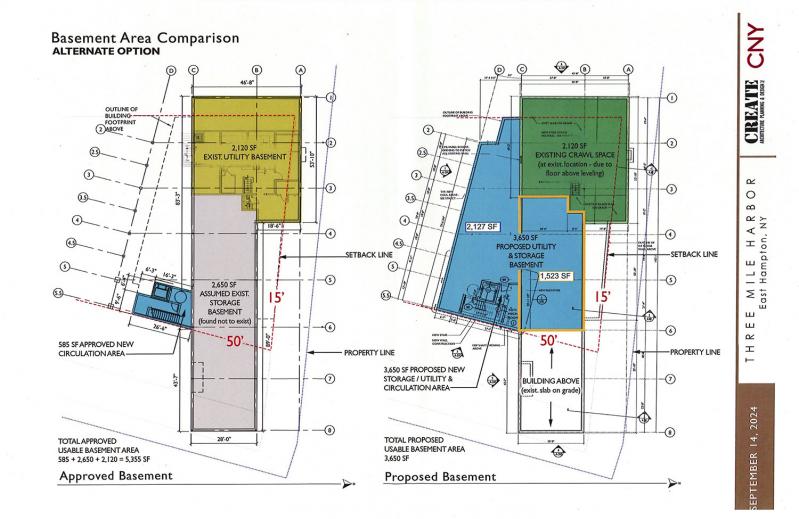A basement that was, then wasn’t, will be again, in a slightly modified form. The East Hampton Town Planning Department and members of the planning board agreed last week that a potential issue wasn’t a big enough deal to derail a prior approval for the conversion of a long-controversial nightclub at 44 Three Mile Harbor Road.
In October 2023, after a yearslong application, the planning board agreed to let Cilvan Realty, which owns the nightclub, expand and convert the pre-existing nonconforming building to create a first-floor market and second-floor offices and apartments, while retaining a 5,355-square-foot basement.
Work was set to begin three months ago, in August, at which point it became strikingly apparent that the building had no basement at all, much less one of 5,355 square feet — and, rather than being retained, it would have to be built.
This created the issue: Is excavating a new basement an expansion of a nonconforming building?
Tina Vavilis-LaGarenne, East Hampton Town’s acting planning director, thought not. “This basement is being constructed as a utility and storage area only,” she told the planning board on Nov. 20. “It would not count toward the gross floor area of the building, using current formulas. Therefore, it’s hard to say it’s expanding a nonconforming building when that calculation is based on an increase in G.F.A.”
While she allowed that “the original approval was based on inaccurate information” and that the Planning Department was “all taken aback and unpleased,” the reconfigured basement meets dimensional regulations and ought not require a whole new approval. The new basement will still be large — 3,650 square feet — but won’t include egress, and the applicant will happily covenant that it will never be converted, for example, to more office space.
Richard Whalen, the attorney for Cilvan, noted that the portion of the basement that will no longer be developed will be only a crawl space. “That’d be only good for spelunking. Caving practice,” he said. “Calling it a crawl space would be liberal.”
He added that summer 2025 would be the nightclub’s last season.
“What we see, is that what we’re getting?” asked Samuel Kramer, the planning board chairman. “Because that was the problem we had last time.” He added that if the new plans were accurate, “All prior sins are purged.”
Louis Cortese, a board member, took issue with an old engineer’s report that never addressed the existence or nonexistence of a basement, but ruled, somehow, that the foundation could withstand a second story. He thought the construction of a basement where one never existed might turn the project into more than a simple reconstruction, therefore removing the building’s pre-existing nonconforming status.
“When you take a pre-existing nonconforming building and totally demolish it — you’re putting in a second floor, you’re embellishing the building — that’s not right, in my opinion,” he said.
Mr. Cortese, however, was an outlier.
If the town didn’t allow people to restore their pre-existing nonconforming buildings, said Mr. Whalen, “They’ll make makeshift repairs. At some point, you’ll have junky stuff,” because owners would choose not to move their buildings to conforming locations.




